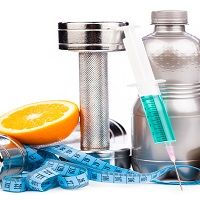Article
Are there Problems with Existing Testosterone Replacement Therapy?
Author(s):
Guidelines for the use of testosterone replacement therapy call for initial and ongoing tests of patient testosterone levels, but new research found a significant problem with such recommendations.

Guidelines for the use of testosterone replacement therapy call for initial and ongoing tests of patient testosterone levels, but new research found a significant problem with such recommendations.
Nearly all of the guidelines are likely focusing on the wrong measurement of testosterone.
Researchers from the University of Manchester in England and the University of Leuven in Belgium used patient data from the European Male Aging Study to analyze the association between the symptoms of hypogonadism and measured concentrations of both total testosterone and free testosterone.
“We show that middle-aged and elderly men with normal total testosterone levels but low free testosterone levels have more symptoms of hypogonadism than those with normal free but low total testosterone,” said lead study author Leen Antonio, MD.
“On the other hand, men with low total testosterone but normal levels of free testosterone do not suffer from testosterone deficiency, yet are misdiagnosed with the condition and can be treated with testosterone inappropriately.”
Antonio noted that current guidelines typically refer to total testosterone levels rather than free testosterone levels, so many of those men with normal total testosterone, but low free testosterone do not get the treatment they probably need to counter their symptoms.
He also said that many men with normal free testosterone and no symptoms may receive unneeded treatment simply because they have low total testosterone levels. (Current guidelines from many medical groups urge doctors to consider both symptoms and test results before prescribing testosterone, but research indicated that many would recommend treatment based on test results alone.)
The study, which was presented at the European Congress of Endocrinology in Dublin, used data from 3,369 men to compare those with normal concentrations of both total and free testosterone to those with normal concentrations of total testosterone, but low concentrations of free testosterone (Group 1) and those with low concentrations of total testosterone, but normal concentrations of free testosterone (Group 2).
Men in the normal group had total testosterone levels that averaged 18.4 nmol/l (± a standard deviation of 5.5 nmol/l) and free testosterone levels that averaged 326±75 pmol/l. Men in Group 1 had total testosterone levels that averaged 14.2±3.7 nmol/l and free testosterone levels that averaged 195±22 pmol/l. Men in Group 2 had total testosterone levels that averaged 9.6±0.7 nmol/l and free testosterone levels that averaged 247±20 pmol/l.
Regression analysis showed that men in Group 1 — but not men in Group 2 — had less frequent morning erections (P=0.012) and more erectile dysfunction (P<0.001) than normal men. Men in Group 1 — but not men in Group 2 — were also more likely than normal men to suffer from physical symptoms related to vigorous activity (P=0.011), walking 1 km (P=0.026) and bending (P=0.005).
These results were unrelated to any other observed differences between the men in Group 1 and Group 2. Indeed, members of the study team thought the findings were strong enough to justify changes to current guidelines for the use of testosterone replacement therapy.
“Independent of age, BMI and comorbidities, men with isolated low free testosterone, but normal total testosterone, have more androgen deficiency-related symptoms than men with normal total testosterone and free testosterone levels; whereas symptoms do not differ in men with isolated low total testosterone,” they wrote. “Not only total, but also free testosterone levels should therefore be assessed in men with hypogonadal symptoms.”





